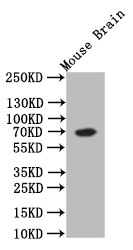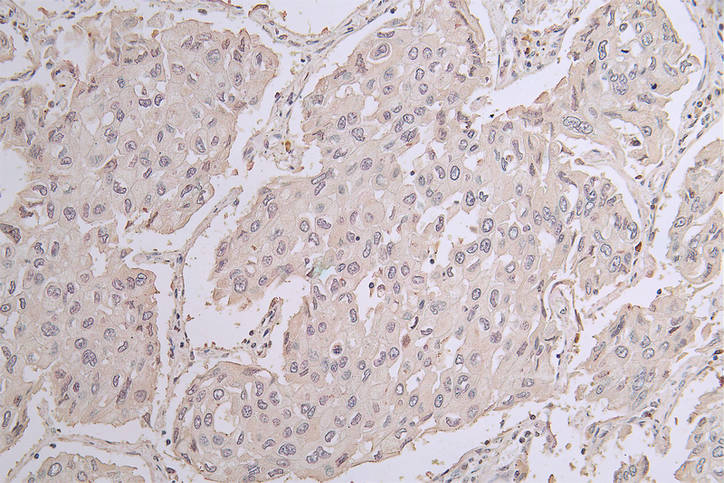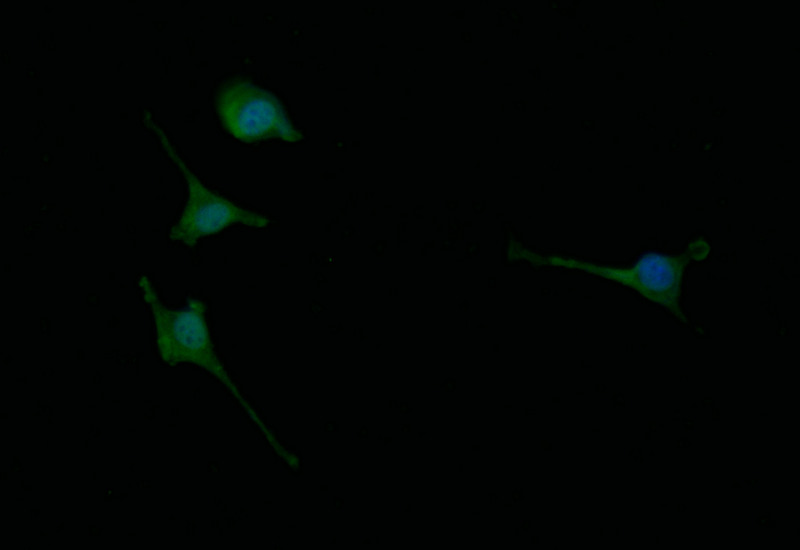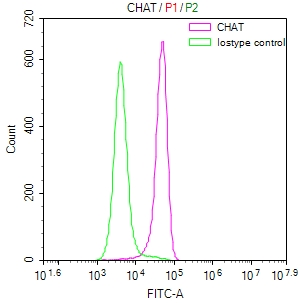The CHAT recombinant monoclonal antibody is synthetically produced in vitro using a systematic approach. Initially, CHAT antibody genes are extracted from B cells isolated from immunoreactive rabbits. These genes undergo amplification and are cloned into suitable phage vectors, which are subsequently introduced into mammalian cell lines to facilitate the production of functional antibodies in significant quantities. The resulting CHAT recombinant monoclonal antibody is purified from the culture supernatant of the transfected cell lines through affinity chromatography. It is suitable for the precise detection of human and mouse CHAT protein in various applications, including ELISA, WB, IHC, IF, and FC.
CHAT protein is responsible for catalyzing the synthesis of acetylcholine, a neurotransmitter that plays essential roles in neurotransmission, neuromuscular function, autonomic regulation, and cognitive processes. Its activity is crucial for the proper functioning of the nervous system and is of clinical significance in the context of neurological disorders and therapeutic interventions.








